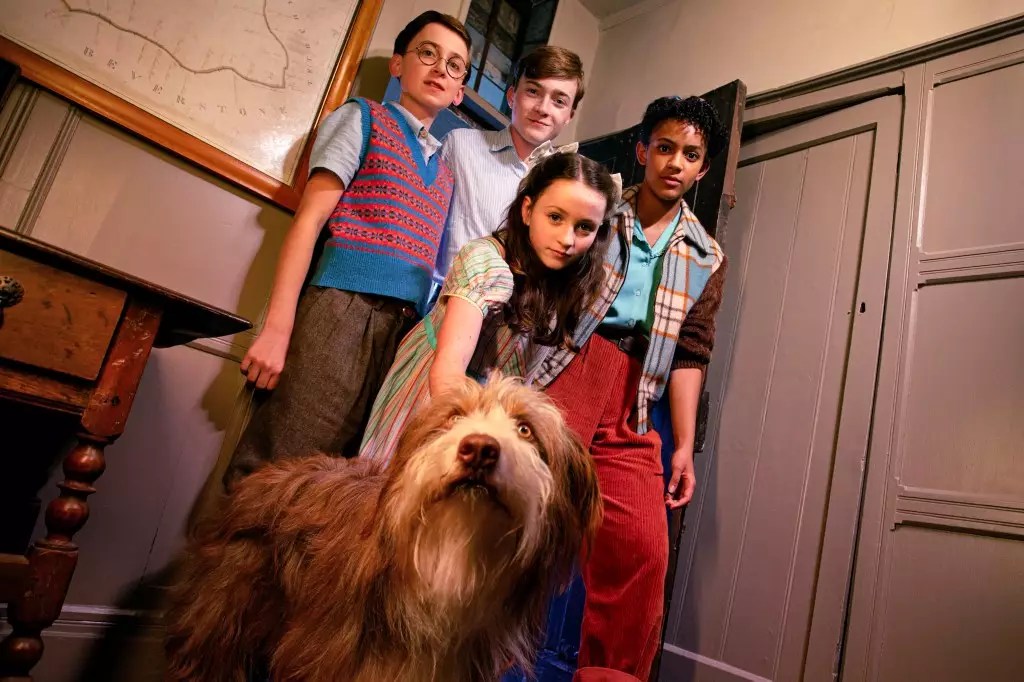The realm of television has long been a playground for adaptation and reinterpretation, often breathing new life into beloved classics. Recently, announcements regarding the revival of ‘The Famous Five’ and the adaptation of the hit series ‘Ghosts’ for an Australian audience have emerged, showing both nostalgia for the past and awareness of contemporary tastes. In this article, we will explore the significance of these adaptations, their implications on culture, and what they reveal about audience expectations in the current media landscape.
With the BBC confirming a second season of ‘The Famous Five,’ the cherished series inspired by Enid Blyton’s timeless works is set to continue captivating audiences. The show, helmed by the acclaimed Nicolas Winding Refn and produced in collaboration with Moonage Productions and Mediapro Studio, has already seen the release of three initial episodes earlier this year. The new installment promises to delve into uncharted waters, quite literally and metaphorically, as the characters navigate both the challenges of wartime life and the turbulent journey of growing up.
What makes this revival particularly intriguing is its modern adaptation approach. While Blyton’s original narratives are steeped in a context that reflects the social and cultural sentiments of the early 20th century, Winding Refn’s version seeks to resonate with today’s youth, who face their own distinctive challenges. We are not just seeing a rehashing of the stories, but a thoughtful reimagining that incorporates contemporary issues. This aligns with a broader trend in the entertainment industry where nostalgia is packaged with modernity, aiming to create something familiar yet fresh for new audiences.
The casting of Jemima Rooper, a familiar face from the 1990s adaptation, in a new role adds another layer of intrigue, appealing both to seasoned fans and newcomers alike. This move not only serves as a bridge between generations but also speaks to the cyclical nature of storytelling—how tales can evolve while retaining core themes of adventure, friendship, and growing pains.
Similarly, the Australian adaptation of ‘Ghosts’ signals a regional approach to a show that has garnered significant international acclaim. Originally a British hit, the series has already made a successful transition to the U.S., and now it finds new ground in Australia, where cultural nuances can be reflected. Set in a haunted country estate filled with quirky ghosts, this series promises to blend humor with the rich tapestry of Australian history.
Paramount+ and Network 10’s initiative to produce an eight-part adaptation underscores the growing trend of taking successful formats and injecting them with local flavor for different cultures. The decision to incorporate an Australian setting and characters hints at a commitment to authenticity—a desire to explore the unique aspects of Australian life and folklore while retaining the essence of the original series. This adaptation can be viewed as a way to connect with local audiences by presenting familiar themes of love, chaos, and the supernatural through the lens of their cultural experiences.
Daniel Monaghan, SVP of Content & Programming at Paramount Australia, highlighted the local fanbase’s eagerness for such adaptations. This response exemplifies a shift in how audiences engage with media; they crave adaptations that don’t merely mimic the original but instead recontextualize stories to reflect their experiences and humor.
In Italy, Gabriele Fabbro’s upcoming film ‘Trifole’ offers another compelling narrative that resonates deeply with audiences today. Scheduled for release on October 17, this feature weaves together themes of sustainability, family, and tradition in a modern tale centered around truffles. The film presents a young woman, Dalia, whose journey from a cosmopolitan lifestyle in London to rural Alba highlights a significant narrative trend: a rekindling of relationships with nature and heritage in a fast-paced, contemporary world.
As Dalia navigates the intricacies of familial bonds and environmental consciousness, ‘Trifole’ serves as a commentary on modern lifestyles—particularly the disconnect many have from their roots and the importance of sustainability. Such narratives are increasingly crucial as global audiences become more aware of ecological issues. Italian cinema’s engagement with these themes not only appeals to local viewers but garners international interest as well, showcasing the interplay of personal stories and broader societal issues.
The recent content deal between Freely and UKTV emphasizes a significant shift in media consumption, highlighting the demand for diverse and accessible programming. Freely’s claim of offering the most extensive library of on-demand content in the UK reflects changing viewer habits—where audiences seek quantity and quality in their viewing options, often turning to platforms that champion local stories and talent.
As the landscape of television and film evolves, the revival of classic stories paired with new adaptations represents more than mere entertainment; they are a reflection of society’s needs, desires, and cultural resonate. The focus on reimagining beloved narratives showcases a profound understanding of the audience’s evolving tastes—combining nostalgia with the pressing issues of contemporary life. Through these adaptations, the industry isn’t just recycling old tales but is instead acknowledging and embracing a new narrative landscape where history meets the present.


Leave a Reply